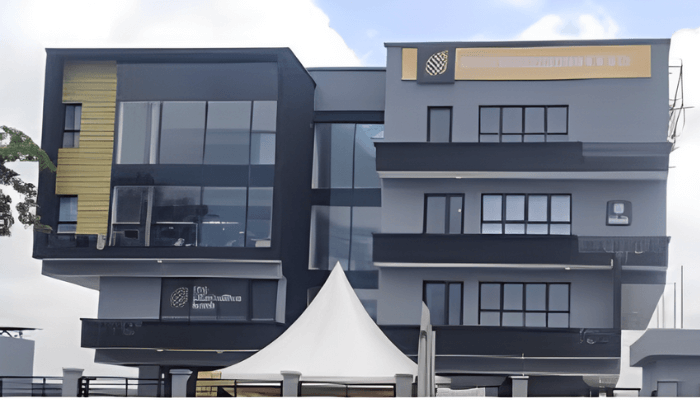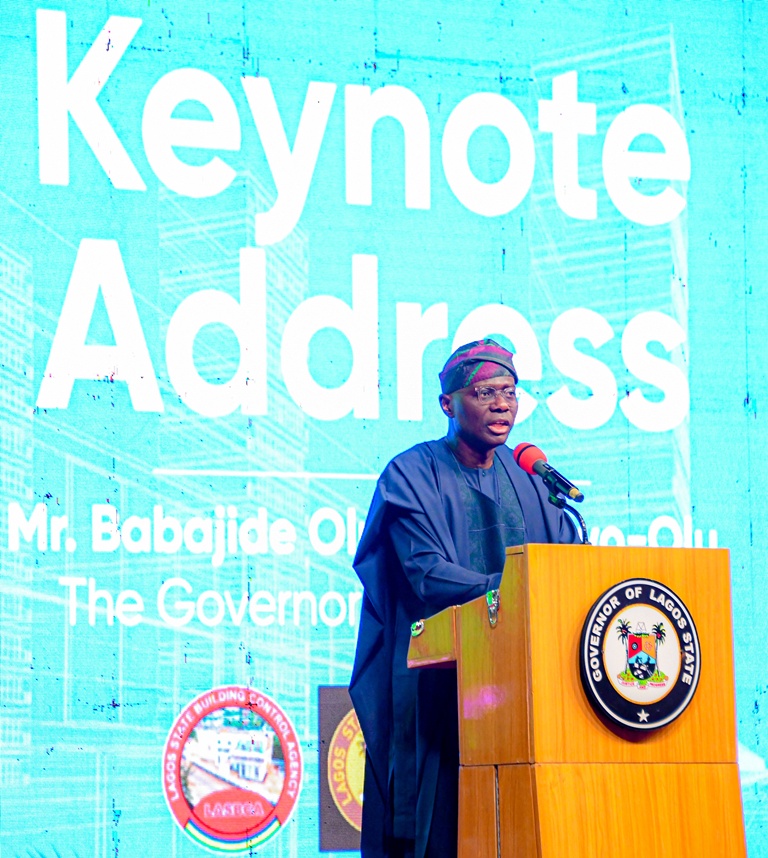By Ayomide Otitoju
Lagos State Governor, Babajide Olusola Sanwo-Olu, has officially launched the Certified Accreditors Program (CAP), a strategic initiative aimed at enhancing building control regulations and preventing structural failures. The launch event, held in Lagos, brought together key stakeholders, including traditional institutions, certified accreditors, professionals in the built environment, and management staff of the Lagos State Building Control Agency (LASBCA) and the Ministry of Physical Planning.
Governor Sanwo-Olu emphasized the significance of the initiative, describing it as a pivotal step toward ensuring a safer and more prosperous Lagos. He reflected on past incidents of building collapses, particularly the tragic events of November 2021, which highlighted the urgent need for stronger regulatory measures. In response, the state government established investigative panels and formulated key recommendations, one of which underscored the importance of collaboration between the public and private sectors in the construction industry.
The Certified Accreditors Program, developed through LASBCA, is designed not just as a regulatory measure but as a transformative initiative to foster a safer, more compliant, and sustainable Lagos. By incorporating private-sector expertise into the regulatory framework, the program aims to enhance compliance with building standards, ultimately reducing the risk of structural failures and ensuring public safety.
“The primary objective of this program is to ensure that the safety of our buildings is not compromised. By reducing the risk of building collapses, we protect lives and property while fostering a sense of security necessary for any thriving community,” the governor stated.
He also highlighted the economic benefits of a robust regulatory framework, noting that stringent safety measures attract investment and drive economic growth. A well-planned and aesthetically appealing city, he added, promotes tourism, instills community pride, and fosters a vibrant local economy.
Governor Sanwo-Olu cited the example of Alaro City, a development project that adheres to high building standards and urban planning principles. He urged developers and industry professionals to follow similar practices to ensure Lagos remains an attractive destination for investors.
Acknowledging the rapid urbanization of Lagos, the governor stressed the importance of adopting a public-private partnership (PPP) approach to enhance regulatory oversight. He urged accredited professionals to uphold integrity and professionalism in their roles, stating that compliance should be a collective responsibility rather than a government-imposed obligation.
“We must work together to create an environment where adherence to building regulations becomes a norm. This program is not about stifling investments or limiting developers but about ensuring that construction activities align with global best practices,” he said.
To support the program’s implementation, Governor Sanwo-Olu announced technological advancements in the building approval process, including digital platforms that will streamline applications, approvals, and compliance monitoring. The Lagos State government has provided LASBCA with necessary resources, including computers and internet access, to facilitate efficiency in regulatory processes.
Furthermore, the Material Testing Agency will be strengthened to improve turnaround times for testing and approvals, thereby eliminating delays and ensuring that compliance remains a priority. The governor warned against corrupt practices and emphasized that regulatory enforcement should not be driven by financial gain but by the commitment to building a sustainable Lagos.
As part of efforts to increase public awareness, the governor directed agencies to intensify communication through radio jingles and advertisements, ensuring that stakeholders understand their responsibilities under the program.
In conclusion, Governor Sanwo-Olu reiterated his vision for Lagos as Africa’s model city, capable of competing with global urban centers. He called on all stakeholders—property developers, architects, engineers, and planners—to collaborate in upholding high standards of integrity and safety in construction activities.
“The success of this program depends on our collective commitment. Let us remain vigilant, report substandard construction practices, and work together to build a safer, more sustainable Lagos for future generations,” he said.












